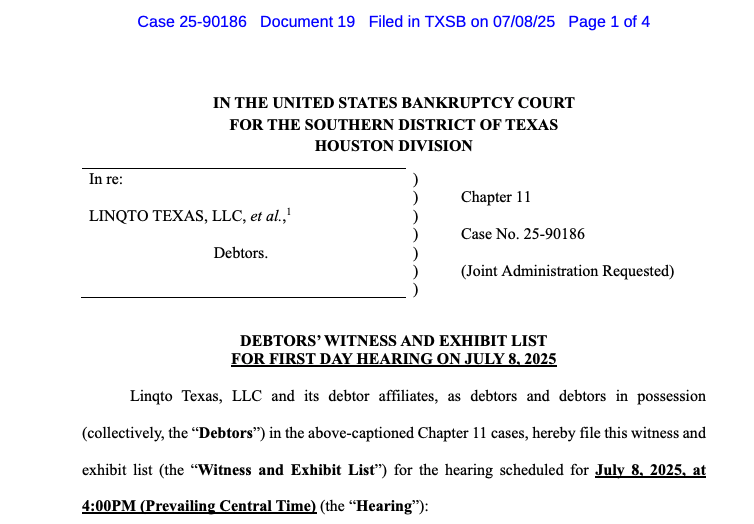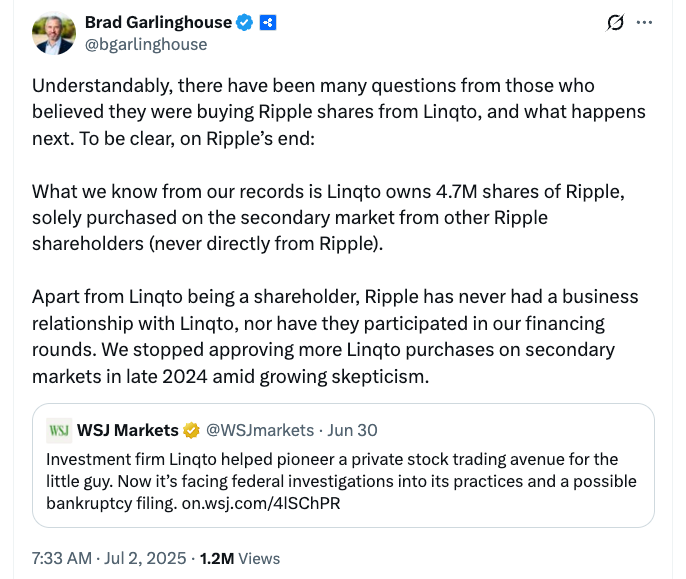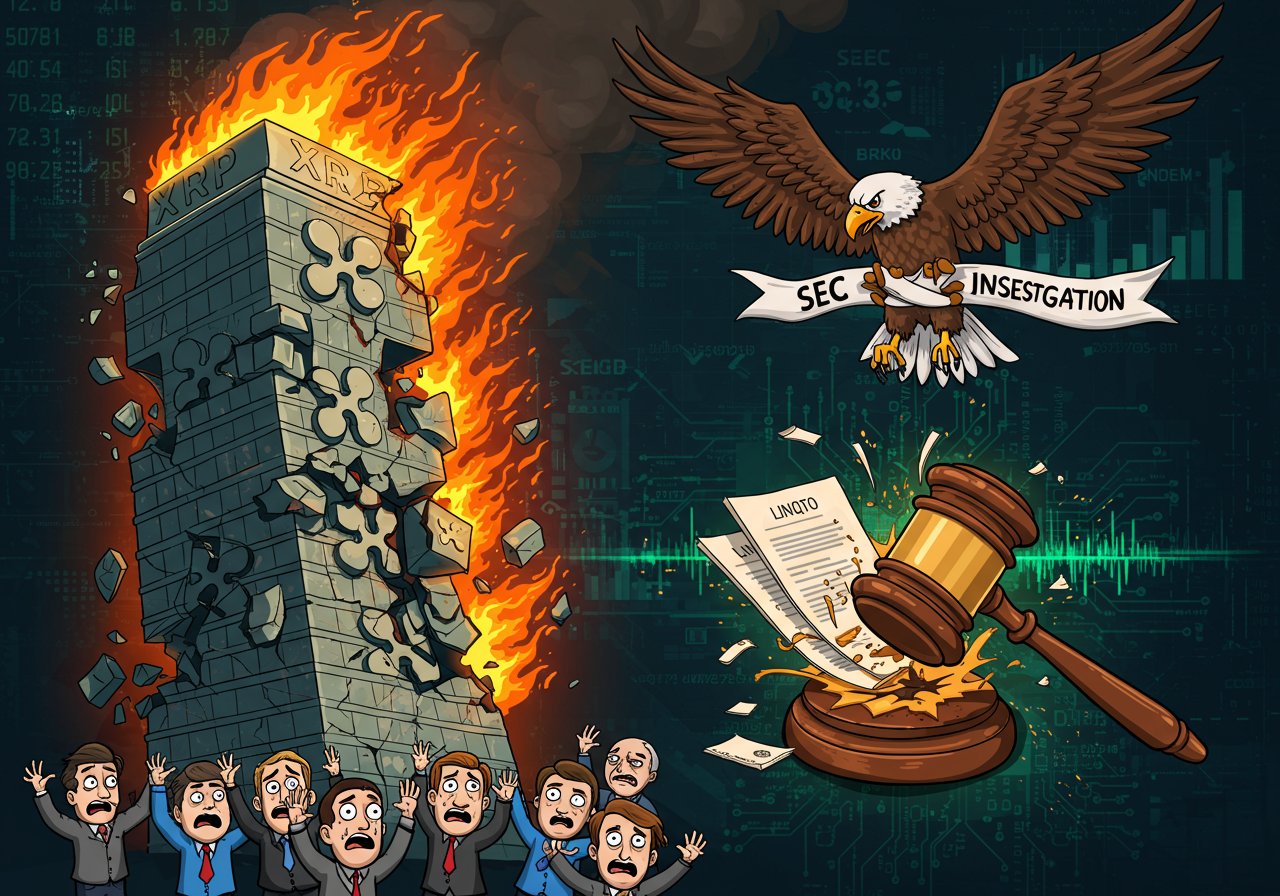
Linqto‘s Financial Troubles: A Deep Dive
The private investment platform Linqto, a company holding a significant stake in Ripple (XRP), has filed for Chapter 11 bankruptcy. This unexpected development has sent ripples through the crypto community, raising questions about the future of Linqto‘s Ripple holdings and the broader implications for private market investments within the digital asset space. The bankruptcy filing, which occurred in the US District Court for the Southern District of Texas, followed reports of federal investigations into Linqto‘s business practices.
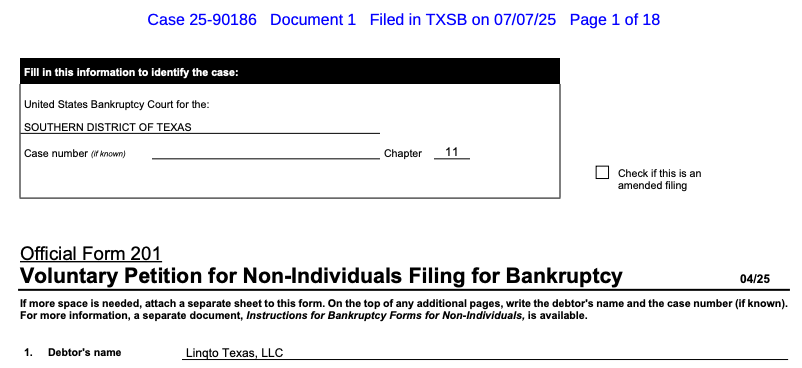
Ripple‘s Stance and the Secondary Market
Ripple‘s CEO, Brad Garlinghouse, has clarified that while Linqto owns 4.7 million Ripple shares acquired on the secondary market, there is no existing business relationship between the two entities. This separation is crucial, as it potentially insulates Ripple from direct financial repercussions related to Linqto‘s financial woes. However, the secondary market impact could be notable, with speculative estimates pegging the value of Linqto‘s holdings at roughly $450 million, based on secondary market pricing.
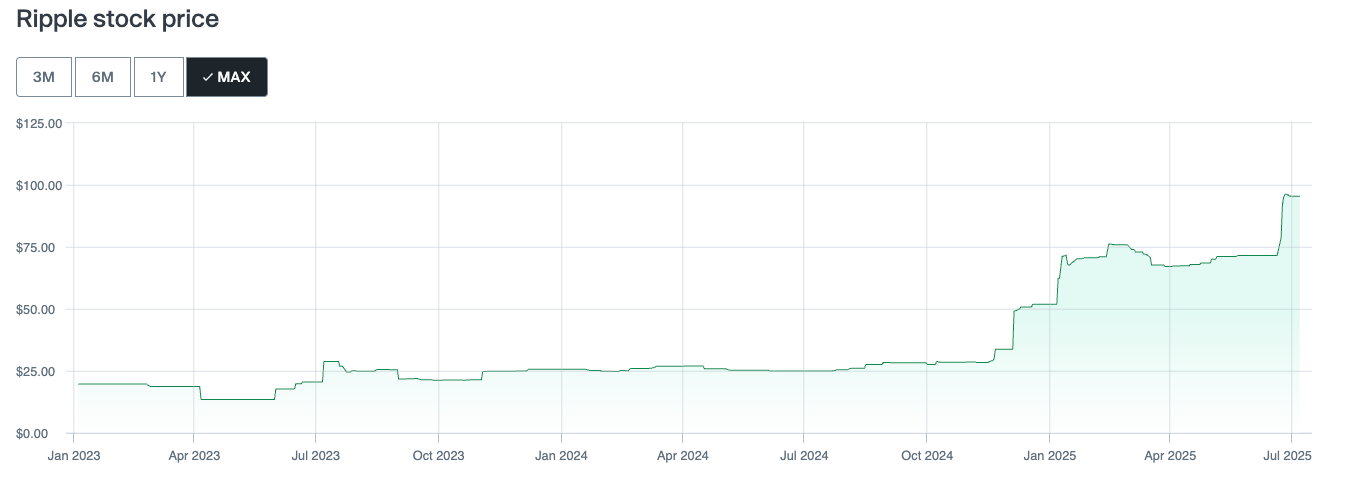
Allegations and Investigations: The Root of the Problem?
The bankruptcy filing is linked to reports of internal investigations and allegations against Linqto. Reports suggest potential issues regarding customer ownership of securities and marketing practices. These concerns, as detailed by The Wall Street Journal, raise significant doubts about the integrity of Linqto’s operations. Former CEO William Sarris was also allegedly involved in offering Ripple shares at a highly inflated price, indicating potential securities law violations.
The SEC’s Involvement and Future Prospects
The US Securities and Exchange Commission (SEC) has already initiated an investigation into Linqto, adding another layer of complexity to the situation. The agency is looking into potential violations by Linqto and its affiliates. The ongoing scrutiny from regulatory bodies like FINRA and the SEC points toward a potentially challenging future for Linqto and its stakeholders.
Potential Market Ramifications
The bankruptcy filing’s impact extends beyond Ripple and Linqto themselves. It could be a cautionary tale for those who invest in pre-IPO and other illiquid assets within the digital asset sector. The bankruptcy highlights the risks involved in such investments, underscoring the importance of due diligence and regulatory compliance. Some key considerations for investors in the current climate include:
- Due diligence: Thoroughly researching the companies before investing.
- Regulatory oversight: Understanding the existing and emerging regulatory landscape.
- Risk assessment: Recognizing the risks associated with illiquid and private market assets.
What Lies Ahead?
Linqto‘s bankruptcy proceedings will likely involve a thorough examination of its assets, liabilities, and business practices. The first bankruptcy hearing is already scheduled, and the outcome could significantly impact the value of the remaining Ripple shares and the broader sentiment surrounding the private investment market within the crypto landscape. Investors and market participants alike are closely watching the situation, seeking to understand the ramifications for Ripple, the investors, and the future of private crypto investments.
